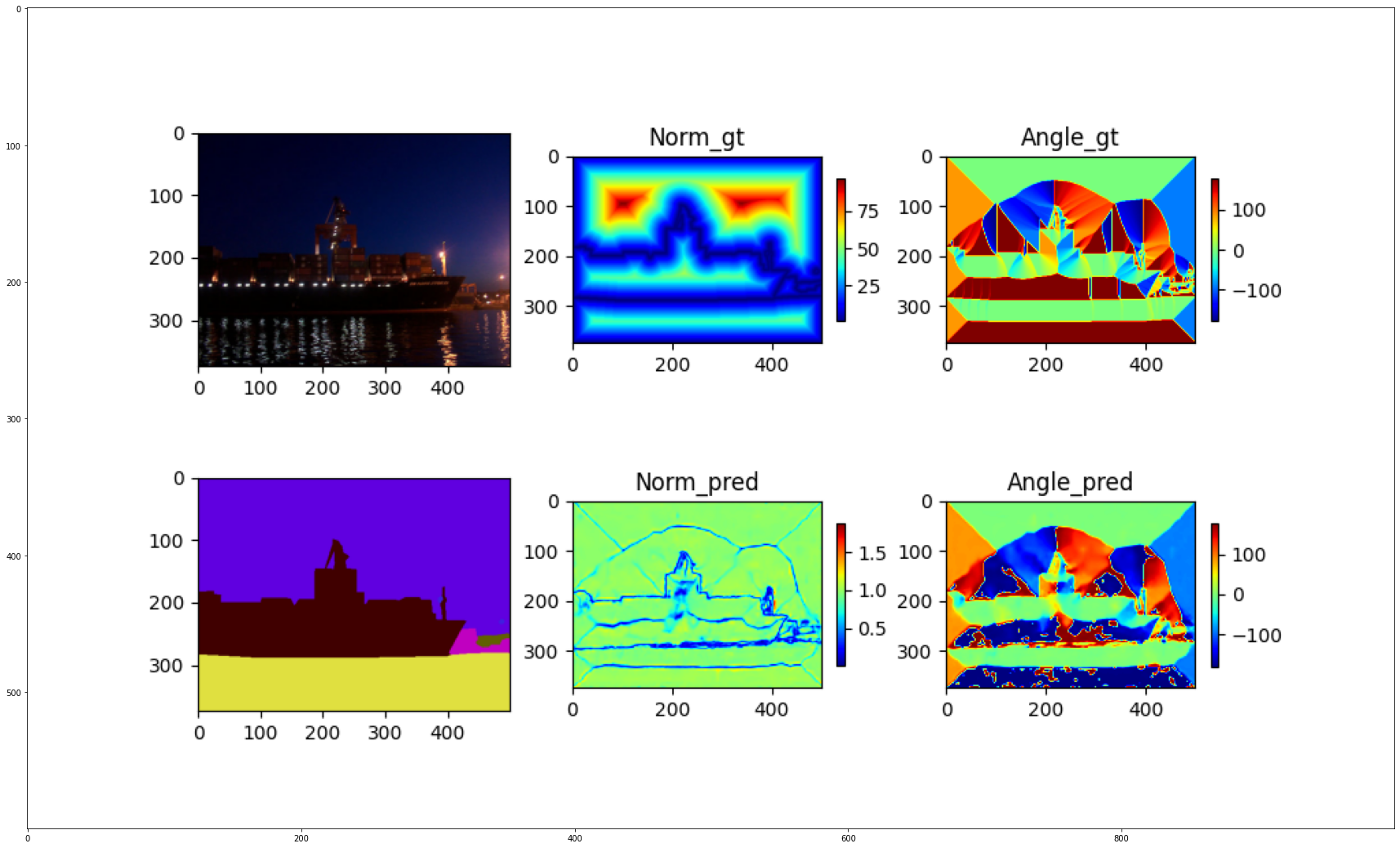clarification on norm loss calculation; possible bug?
rllin opened this issue · 6 comments
when i look at the image at https://github.com/JianqiangWan/Super-BPD/blob/master/post_process/2009_004607.png
the norm_pred seems to decrease to blue (< 0.5) in the center of the cat's face (farther from the boundary). this also happen for all midpoints from the boundary of the cat. this is extremely different than the norm_gt
when I look at the code in
https://github.com/JianqiangWan/Super-BPD/blob/master/vis_flux.py#L45
that seems like the correct calculation for the norm
I've run this on a few other examples
and a similar thing seems to happen.
this led me to go investigate the implementation of the loss
If I'm understanding the loss as defined in the paper
that means norm_loss should be pred_flux - gt_flux like in https://github.com/JianqiangWan/Super-BPD/blob/master/train.py#L42
norm_loss = weight_matrix * (pred_flux - gt_flux)**2
however, this happens after https://github.com/JianqiangWan/Super-BPD/blob/master/train.py#L39. which, I believe, is incorrect
I believe that L39 needs to happen after L42. otherwise, the norm_loss as-is is actually training the norm values to be angle values.
This makes sense as if we look at the norm_pred outputs, they look more similar to the norm_angle outputs than they should be.
HOWEVER, I could be completely misunderstanding the norm_loss term, so please let me know if I am! 🤞
Emmm, I am sorry for the confusion of norm gt (It is wrong, norm gt should be 1 at each pixel. Actually, it is a distance transform map). The calculation of gt flux can be seen in sec 3.1 of origin paper, returned gt_flux of datasets.py is not normalized by corresponding distance because the visualization of norm gt will be collapse.
Lines 97 to 99 in 3c44638
So the normalization process is put in the loss calculation function.
thanks for the fast response @JianqiangWan !
however do you understand my concern with the pred_norm collapsing at unexpected places? perhaps I'm misunderstanding pred_norm?
i am also then confused that
Lines 39 to 48 in 3c44638
gt_flux is normalized (because it was not in datasets.py) for the norm loss
but pred_flux is normalized for the angle loss and not the norm loss
We define gt flux at each pixel as a two-dimensional unit vector pointing from its nearest boundary to the pixel. So gt flux around medial points have nearly opposite directions. It is difficult for neural networks to learn such sharp changes, and the network is more inclined to get a smooth transition (like from -1 to 1, network tend to output -1 -0.5 0 0.5 1).
For the norm loss, gt flux is a two-dimensional unit vector field, pred flux does not to be normalized.
For the angle loss, normalize pred flux inside or outside of torch.acos is the same.

thanks for the thorough response
let me make sure I understand:
- gt flux transitions directionality upon hitting the medial points. we can see this difficulty in learning sharp transitions in the difference between
angle_gtandangle_pred: the transition from media to the boundary inangle_predshows a gradient (like you mention-1 -0.5 0 0.5 1). your explanation makes sense to me for theangles and is born out by the actual behavior of the network. - however, my primary concern is specifically with the
normcomponent. my understanding is that these are direction agnostic, as seen innorm_gtwhere we see:
boundary ---- medial point ---- boundary
0 1 2 3 4 5 6 7 6 5 4 3 2 1 0
however, we do not see that this is the case for norm_pred. the network seems to always predict:
boundary ---- medial point ---- boundary
0 1 1 1 1 1 1 0 1 1 1 1 1 1 0
We need two channels (x, y) to express a flux field, gt flux around medial points can be roughly expressed as (x1, y1) and (-x1, -y1) since they have opposite direction.

From -x1 to x1 or -y1 to y1, network hardly gets the sharp transition, tending to get smooth transition.
norm = sqrt( x**2 + y**2), so pred norm between medial points (x to -x) or boundary points (-x to x) is very small, but the angle is still correct (we only use angle information for image segmentation).
Again, norm gt at each pixel is 1, 'norm gt' in the picture is a distance transform map before normalization.


